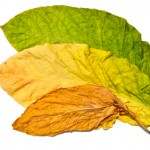Half of those who smoke die before their time. And there's a direct linkage between their smoking habit and the diseases they die from.
I stopped smoking as a junior in medical school forty-eight years ago. I was helping take care of a Veterans Administration cancer ward and saw one of our patients, smoking through his tracheostomy. I had only been a smoker for two years and had been thinking of quitting: that visual image cinched the matter.
My father, who lived to almost ninety-five, gave up the habit as a young doc. One morning he realized he had ashtrays in all three rooms of his medical office and a cigarette that he had lit was burning in each one. He snuffed all of them out, threw his pack of "cancer sticks" away and got rid of the ashtrays as well.
A May 2010 fact sheet from the World Health Organization (WHO) with the simple title "Tobacco," states the clear-cut, nasty facts. The noxious weed kills almost six million people a year; in all smoking leads to one out of every ten adult deaths. WHO states that ten percent of those are nonsmokers who've had the misfortune to be exposed to second-hand smoke. They breathe in some of the 4,000+ chemicals in tobacco smoke with a least 250 of those known to be harmful and more than 50 known to cause cancer.
But there is even worse news; over 40% of kids have a parent who smokes and those kids are among the group exposed to all those dangerous chemicals from second-hand smoke. One estimate is that ~30% of those who die from second-hand smoke are children.
Overall, the World Health Organization says tobacco caused 100 million deaths in the 20th century and, unless something changes radically, our smoking trends worldwide could lead to a tenfold increase in those deaths in the 21st century. Current estimates say there are at least one billion smokers across the globe and roughly eight of every ten of those live in low- and middle-income countries. We've got a considerable share of smokers in this country as well, many of them are relatively young.
Growing the plant raises another problem for children. Although most of the world's tobacco is raised elsewhere, with China Brazil and India leading the pack, the United States still has a $35 billion per year industry for the "pernicious weed" with 303 billion cigarettes sold in 2010 and 122.6 million pounds of smokeless tobacco. The kids who live in regions that raise the plant are often employed in cultivating and harvesting it.
Those children are potential victims of green tobacco sickness (GTS), even if they don't smoke or chew it themselves. The occupational disease they contract is actually acute nicotine poisoning and reports of cases in children and adolescents have been reported only in the US in the medical literature and rarely even there.
Agricultural occupational illness, for example from pesticide exposure, is well known, but the risk factor is ordinarily not plant itself. In the case of tobacco (as is the case for opium) the crop is actually the major biohazard, with a major component being the nicotine dissolved in rain or dew on the tobacco leaves. Children usually haven't developed tolerance to nicotine like long-term adult smokers have and frequently lack any knowledge of the risks involved in handling the leaves of the plant.
Nausea, vomiting, headaches, weakness and dizziness are among the symptoms of GTS. It's quite uncommon for the affliction to be severe enough to be fatal, but the 2005 report above quotes a child who said he felt, "like I was going to die."
With most of the world's production of tobacco coming from outside the US, especially in developing countries where pediatric emergency and intensive care is considerably less available, much more attention needs to be paid to the risk factors for GTS and potential strategies for its avoidance.
JAMA, the Journal of the American Medical Association, recently (March 13, 2013) published a research article and two other commentaries on smoking cessation.
One of the reasons, actually rationales (or better yet, excuses) smokers give for not quitting is, "I'll gain weight and that's just as bad for my health!" An article with the ponderous title "Association of Smoking Cessation and Weight Change with Cardiovascular Disease Among Adults With and Without Diabetes," attempted to parse this belief. The short take on this article is available online on an NIH webpage. Data was gathered on cardiovascular disease (CVD) events and weight gain among 3251 Framingham Offspring Study participants followed for a mean time of 25 years (the study ran from 1984 to 2011).
Smoking cessation was associated with a considerably lower risk (about half) among those in the study who were not diabetic. Long-term weight gain was mild (typically a couple of pounds after an initial bump of perhaps five pounds) and did not affect the CVD benefits of stopping smoking.
An associated question, "Helping Smokers Quit Around the Time of Surgery," was discussed by three academic physicians, one from Yale and two from UCSF. It is common for smokers to have no pre-operative counseling on cessation programs before they have elective surgery, yet their post-op complication rate is markedly higher if they haven't quit.
Two randomized, controlled studies, one in Lancet in 2002 and the other in the Annals of Surgery in 2008, have shown a marked decrease in after-surgery problems, including pneumonia, wound infections, strokes and heart attacks, through a 4 to 8 week pre-op smoking cessation program. .
It's clearly time to focus our attention on the huge issues associated with growing, harvesting and smoking/chewing tobacco. The enormous health costs involved are well worth our best efforts.
Otherwise ten million surgical patients (in this country alone), children workers in the tobacco industry in many countries, all those who are hooked on the weed and those of us exposed to second-hand smoke will continue to be at risk.



